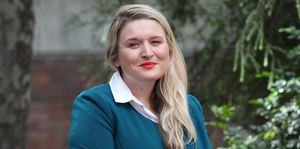"Collegiality is not compromise": Farewell Justice Crennan, the Consensus Woman

The recent retirement of Justice Susan Crennan prompts questions about her judicial legacy. These questions take on a particularly gendered dimension given her Honour’s status as the second woman appointed to the High Court of Australia. This article examines critically the legacy Justice Crennan and others sought to craft about her upon her retirement from the Court. It does so by examining the judicial farewell speeches made in commemoration of her time on the court. These largely overlooked social scripts provide revealing insights about the interaction between individual and institutional values in public legal discourse. Two motifs punctuate these speeches in ways that are significant in forming impressions about the gendered dimensions of Justice Crennan’s legacy—her Honour’s ‘humanity’ and ‘collegiality’. By asserting that “collegiality is not compromise” (as Justice Kiefel before her had done), Justice Crennan emphasised its importance for the institutional wellbeing of the Court. In so doing, Justice Crennan brought into sharp focus gendered implications that flow from recent tensions about the role and contributions of judges. These tensions reveal that the masculinist character of law and its institutions continues to shape how women’s legal authority is received.
Dr Kcasey McLoughlin is currently a Lecturer in Law at Newcastle Law School. Kcasey's research explores the interaction between women, gender and difference in the judiciary. Her PhD was awarded in 2016 and this research examined the way in which gender and difference have impacted upon the contributions of women judges to the High Court of Australia. In addition to her research about women and the judiciary, Kcasey's research is more broadly interested in how law affects women's lives. She is currently researching gendered constructions of judicial identity and legacy, the legal regulation of abortion, and gendered notions of ‘harm’ and ‘home’ in legal constructions of the public/private spheres. As an interdisciplinary researcher interested in feminist legal theory and feminist political theory she is eager to press the boundaries between the disciplines of law and political science in ways that are meaningful to both disciplines.